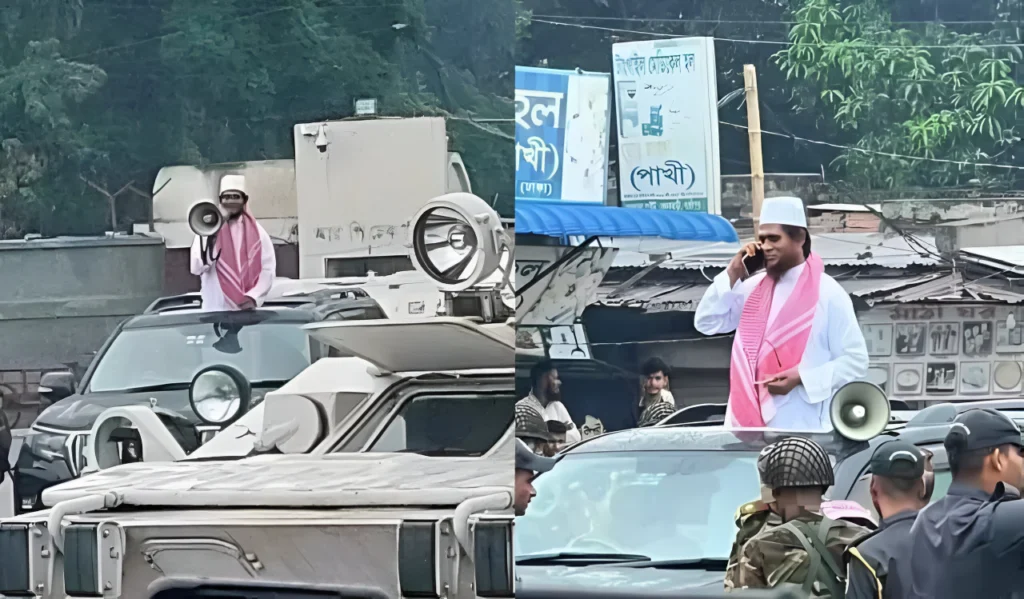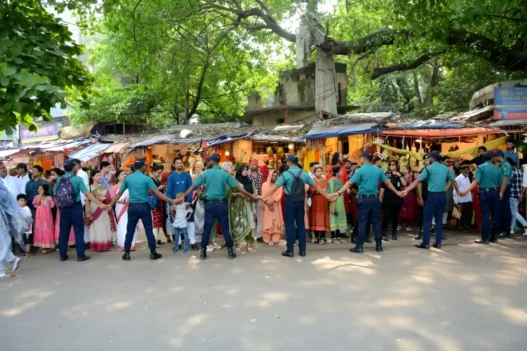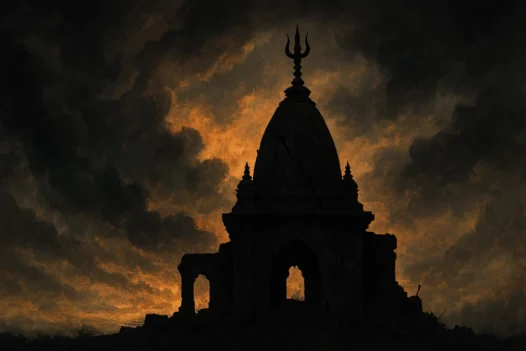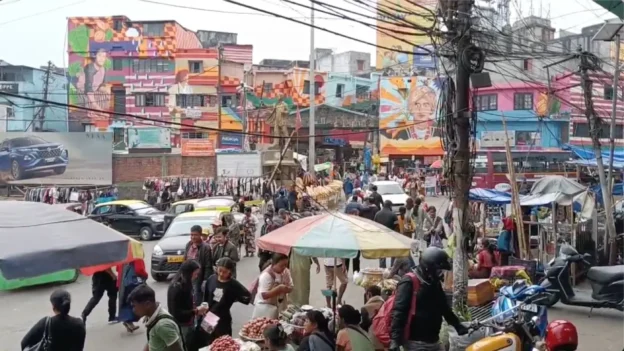Barely two months have passed since the fall of Sheikh Hasina’s government in Bangladesh, and already radical Islamist groups and terror outfits, such as the Ansarullah Bangla Team (ABT), have begun to escalate tensions with India, issuing threats to dismember the country. This surge in extremist activities signals the beginning of a troubling process of radicalisation in Bangladesh, one that poses severe risks not only to India but also to the stability and democracy of the entire South Asian region.
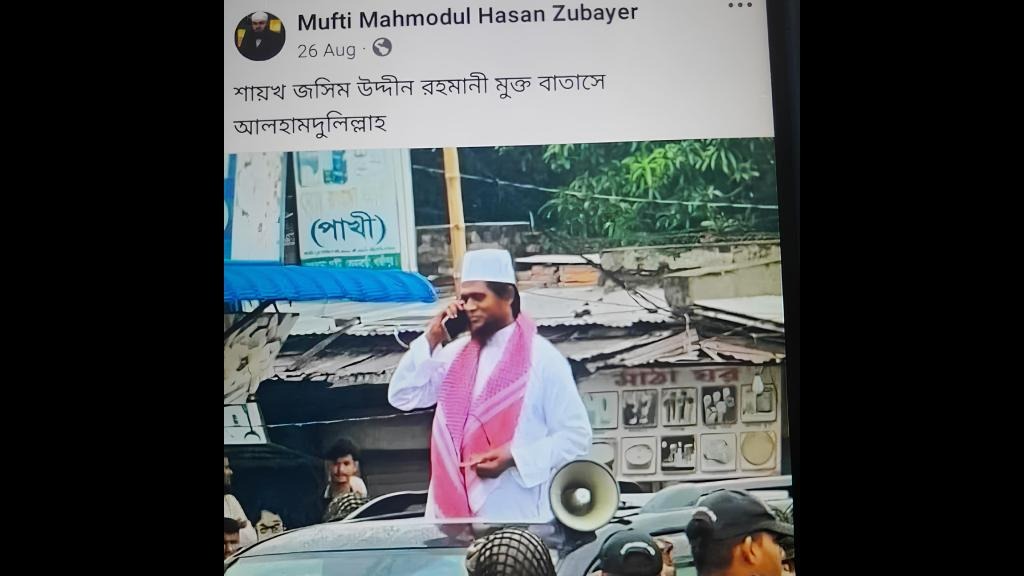
The radical elements in Bangladesh, particularly groups like Hefazat-e-Islam and Jamaat-e-Islami, are increasingly vocal about their ambitions to establish an “Islamic state” in the country, advocating for the introduction of Sharia law. Compounding this, terror outfits like the ABT, led by Jashimuddin Rahmani, have taken an openly hostile stance against India. The ABT, an al-Qaeda-affiliated terrorist group, has long harboured ambitions to infiltrate Indian states such as West Bengal, Assam, and the North-East, aiming to sow discord and violence.
Rahmani, recently released from prison under the Yunus-led interim government, has wasted no time in issuing calls for the dismemberment of India. In a video circulating widely on social media, he calls upon nations and groups like China, Pakistan, and Afghanistan to support efforts to separate India’s northeastern states and Kashmir. He even extends these threats to West Bengal, urging its Chief Minister, Mamata Banerjee, to “free” Bengal and offers support to Khalistani separatists.
While these threats have largely been dismissed as “propaganda,” Indian authorities are not taking them lightly. Senior government officials have hinted at diplomatic pressure on Dhaka, particularly on Yunus and the military leadership, to address the anti-India sentiments and activities emanating from Bangladesh’s soil. According to government sources in India, Yunus’ message of maintaining “fairness and equality” in ties with India cannot coexist with threats from radical Islamists and terror groups operating freely within Bangladesh. In response, India has activated its intelligence and security agencies along the Bangladesh border, intensifying efforts to track suspicious individuals, including religious leaders from Bangladesh visiting India under various pretexts.
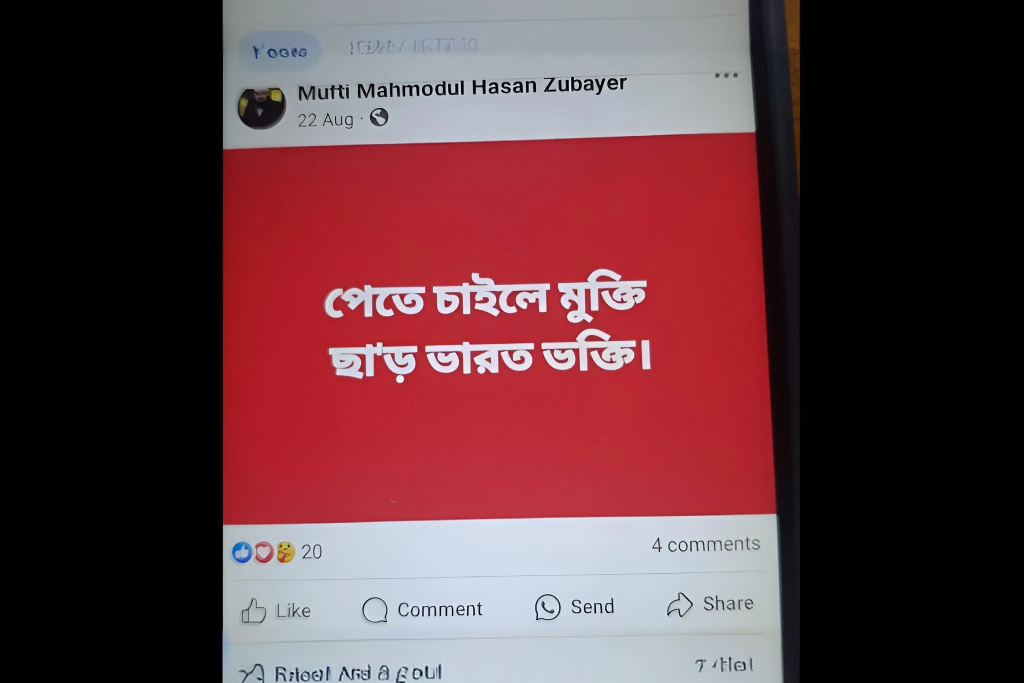
The ABT’s campaign, spearheaded by Rahmani, is viewed by Indian government officials as a calculated attempt to disrupt India’s civilisational foundation rooted in Hinduism. Although the ABT’s rhetoric is outwardly aimed at the BJP and the Hindutva ideology, sources in Bangladesh suggest that there is a broader, more insidious plan in collaboration with Pakistan-based terror groups like Lashkar-e-Taiba and Jaish-e-Muhammad. The ABT’s ties with these organisations are well-documented, particularly through its involvement in the targeted killings of secular bloggers and journalists in Bangladesh. In 2013, Rahmani was arrested for his role in the murder of human rights blogger Rajib Haider, part of a string of killings that ABT claimed responsibility for between 2013 and 2016.
The radicalisation sweeping through Bangladesh following the ouster of Sheikh Hasina is part of a larger, coordinated plan by extremist groups. This is evident from the recent illegal entry of a Bangladeshi cleric, Mufti Mahmodul Hasan Zubayer, also known as Mufti Zubayer Rahmani, who has close ties to the ABT. Zubayer crossed into India via the Haridaspur check post in West Bengal on September 5 and is believed to have visited Islamic institutions in Delhi, including the renowned Darul Uloom Deoband in Uttar Pradesh. He has been actively involved in anti-Indian propaganda through social media, calling for support for insurgent groups, the boycott of Indian products, and the separation of the seven northeastern states from India. His activities appear particularly ominous as they coincide with the onset of religious festivities in India, such as Ganesh Chaturthi, potentially aiming to disrupt communal harmony.
Declare Bengal’s independence from Modi rule, Bangladesh Islamist tells Mamata In a video, Islamist Jashimuddin Rahmani Hafi, the chief of al-Qaida affiliate, Ansarullah Bangla Team (ABT), asked West Bengal Chief Minister Mamata Banerjee to “declare independence from Modi’s rule” pic.twitter.com/Czbq0guX4R
— শুভদীপ রায় (@subhadiproy4u) September 13, 2024
Indian authorities have intensified their hunt for Mufti Zubayer, releasing critical details such as his Bangladeshi mobile number (+880-1913101639) and passport number (A00535583). New Delhi is now investigating how he managed to enter India and is closely monitoring his activities since his arrival. Zubayer’s infiltration could well be part of a larger design by extremist groups to destabilise India, especially during sensitive periods of religious and national significance.
The radicalisation in Bangladesh is not just an immediate threat to India but also a grave danger to the future of democracy in Bangladesh itself. With extremist groups gaining a stronger foothold, the democratic fabric of the country is under siege. The weakening of democratic institutions in favour of radical ideologies could pave the way for a regime that threatens not only regional stability but also global security. The increasing activities of terror outfits like ABT, with their connections to global jihadist movements, are a clear warning sign that the radicalisation of Bangladesh could have far-reaching consequences, both for India and the region at large.
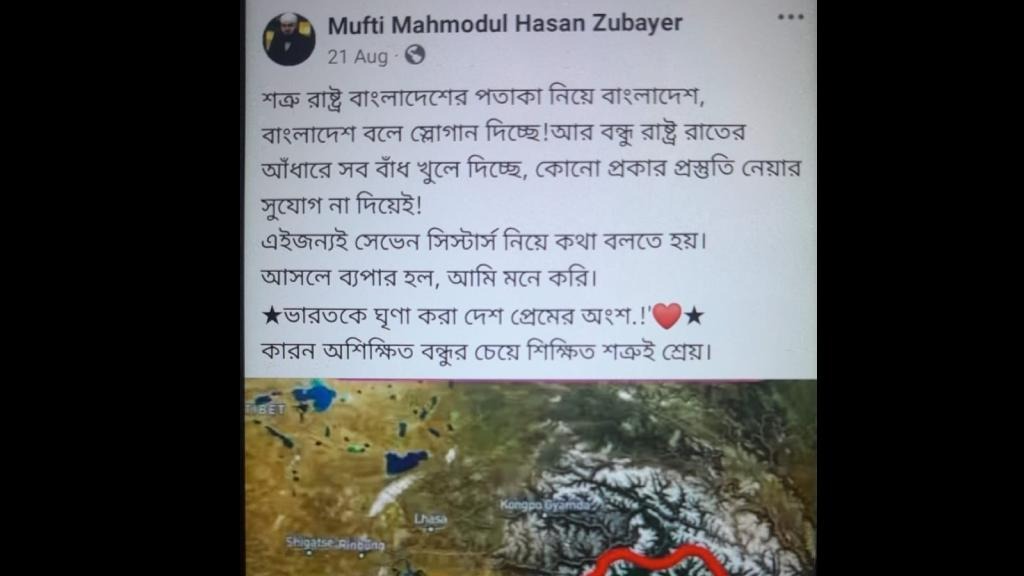
India’s concerns are not without merit. The growing nexus between terror outfits in Bangladesh and Pakistan-backed groups, coupled with the strategic use of Bangladesh’s soil for anti-India operations, demands an urgent and coordinated response. As radical elements consolidate their influence, both New Delhi and Dhaka will need to navigate an increasingly volatile landscape, one that threatens the peace and stability of the region.
In the wake of these developments, India must remain vigilant and proactive in addressing the threat of radicalisation in its neighbourhood. The destabilisation of Bangladesh would not only embolden terror groups like ABT but also weaken the democratic institutions that have long been a bulwark against extremism. The international community, too, must recognise the gravity of the situation and support efforts to counter radicalisation, ensuring that democracy, rather than extremism, prevails in Bangladesh.

